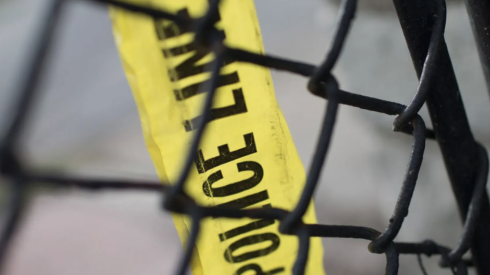Entertainer and 1970s teen idol David Cassidy has died.
The musician and actor, 67, who starred in TV’s “The Partridge Family” (1970-74), has died in Florida after being hospitalized with organ failure, according to a statement from his representative, Jo-Ann Geffen.
“On behalf of the entire Cassidy family, it is with great sadness that we announce the passing of our father, our uncle, and our dear brother, David Cassidy,” the statement said. “David died surrounded by those he loved, with joy in his heart and free from the pain that had gripped him for so long. Thank you for the abundance and support you have shown him these many years.”
In February, Cassidy announced that he had been diagnosed with dementia. Just before sharing that news, he said he was retiring from touring.
He acknowledged that family history had haunted him because he watched his grandfather struggle with dementia and saw his mother “disappear” from it as well.
The decision to stop live performances was because “I want to focus on what I am, who I am and how I’ve been without any distractions,” he said at the time. “I want to love. I want to enjoy life.”
Before the health announcement, Cassidy had largely kept a low profile, making headlines in recent years mostly with DUI cases. In March 2014, a judge in Los Angeles sentenced Cassidy to three months in rehab and five years of probation in a drunken-driving case. Later that year, the performer pleaded guilty to a misdemeanor charge of driving while intoxicated in upstate New York.
A child of Hollywood, he was the iconic teen idol of the 1970s. Before Shawn Mendes, Justin Bieber, Zac Efron and the members of the 1980s Brat Pack, there was pop star Cassidy in his colorful polyester ensembles featuring giant collars and flared slacks. He and The Partridge Family had a No. 1 hit with the catchy tune “I Think I Love You” in fall 1970. His biggest solo single was a version of “Cherish,” which peaked at No. 9 after its release in 1971.
He continued to add acting credits through the decades, appearing in television shows such as “Fantasy Island,” “Malcolm in the Middle, “Ruby & the Rockits” and “CSI,” as well as the movie “Popstar.”
His father was actor Jack Cassidy, who suffered from bipolar disorder and alcoholism. The elder Cassidy died in a fire in 1976 when he fell asleep with a lit cigarette. His mother, actress Evelyn Ward, died in 2012.
Cassidy’s stepmother, Shirley Jones, was married to Jack for nearly two decades until they divorced in 1975. She co-starred with David in “The Partridge Family,” a musical sitcom about a widow and her children who embark on a musical career as a band. He played the oldest son, Keith.
Cassidy, with his shaggy brown hair, and half-brother Shaun Cassidy (Jones’ oldest son with Jack), with a similar blond shaggy ‘do, dominated the covers of teen magazines during the era that preceded MTV and VH1. Shaun starred with Parker Stevenson in “The Hardy Boys/Nancy Drew Mysteries” (1977-79).
Lorena Bias, USA TODAY






